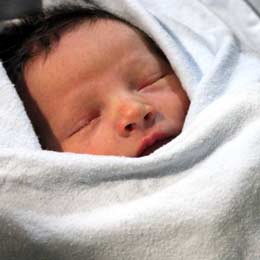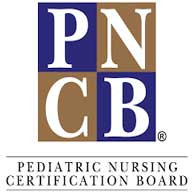Why get your child vaccinated?
Measles, Mumps, and Rubella can be very serious diseases.
Measles
Measles is a very contagious illness caused by a virus. It spreads through the air when someone coughs or sneezes. After being exposed, it usually takes about 10 to 12 days for the first symptoms to show, and around 14 days for the rash to appear. Before the rash, a person often has a fever that starts low and can go as high as 103°-105°F, along with a cough, runny nose, and sometimes red eyes. Some people also get small blue-white spots in their mouths before the rash shows up.
The measles rash starts at the hairline and moves down to the face, neck, and then the rest of the body. It can look like small bumps and sometimes the spots can merge together. Other signs of measles can include not wanting to eat, diarrhea (especially in babies), and swollen lymph nodes. Serious problems can happen too, like ear infections, lung infections, brain swelling, seizures, or even death. While it’s uncommon, vaccinated people can still get measles, but their symptoms might look different, like a shorter rash or mild symptoms without fever or cough.
Measles can also cause a loss of appetite, diarrhea (especially in babies), and swollen lymph nodes. Serious problems from measles can include ear infections, lung infections, brain swelling, seizures, and death.
It’s uncommon for people who got the measles vaccine to get measles, but it can still happen. If they do get measles, their symptoms might be different—like a shorter rash, a strange-looking rash, and possibly no fever, cough, runny nose, or eye irritation.
Mumps
Causes fever, headache, swollen glands. Can lead to deafness, meningitis (infection of the brain and spinal cord covering), infection of the pancreas, painful swelling of the testicles or ovaries, and, rarely, death.
Rubella (German Measles)
Causes rash and mild fever; and can cause arthritis, (mostly in women). If a woman gets rubella while she is pregnant, she could have a miscarriage or her baby could be born with serious birth defects.
When should your child get the MMR vaccine?
MMR vaccine may be given to children from 1 through 12 years of age to protect them from these four diseases.
Two doses of MMR vaccine are recommended:
- The first dose at 12 through 15 months of age
- The second dose at 4 through 6 years of age
These are recommended ages. But children can get the second dose up through 12 years as long as it is at least 3 months after the first dose.
One less shot with MMRV . Children who got the first dose as MMRV have had more fevers and fever-related seizures (about 1 in 1,250) than children who got the first dose as separate shots of MMR and Varicella vaccines on the same day (about 1 in 2,500).
Other Routine Immunizations We Provide
- Diphtheria, Tetanus, and Pertussis (DTaP)Diphtheria, tetanus, and pertussis are serious diseases caused by bacteria. Diphtheria and pertussis are spread from person to person. Tetanus enters the body through cuts or wounds.
- Hepatitis AHepatitis A is a serious liver disease caused by the hepatitis A virus (HAV). HAV is spread from person to person through contact with the feces (stool) of people who are infected, which can easily happen if someone does not wash his or her hands properly.
- Hepatitis BHepatitis B is a serious disease that affects the liver. It is caused by the hepatitis B virus. Hepatitis B can cause mild illness lasting a few weeks, or it can lead to a serious, lifelong illness.
- Hib (Haemophilus Influenzae Type B) Haemophilus influenzae type b (Hib) disease is a serious disease caused by bacteria. It usually affects children under 5 years old. It can also affect adults with certain medical conditions.
- HPVHPV vaccine prevents infection with human papillomavirus (HPV) types that are associated with many cancers.
- Influenza – InactivatedInfluenza or “flu” is a contagious disease that spreads around the United States every year, usually between October and May.
- Measles, Mumps, Rubella (MMR)Measles, Mumps, Rubella, and Varicella (chickenpox) can be serious diseases. These diseases can spread from person to person through the air. Varicella can also be spread through contact with fluid from chickenpox blisters.
- Measles, Mumps, Rubella & Varicella (MMRV)Measles, Mumps, Rubella, and Varicella (chickenpox) can be serious diseases. These diseases can spread from person to person through the air. Varicella can also be spread through contact with fluid from chickenpox blisters.
- Meningococcal Conjugate Vaccines (MCV)Meningococcal disease is a serious illness caused by a type of bacteria called Neisseria meningitidis. It can lead to meningitis (infection of the lining of the brain and spinal cord) and infections of the blood.
- Serogroup B Meningococcal (MenB)Meningococcal disease is a serious illness caused by a type of bacteria called Neisseria meningitidis. It can lead to meningitis (infection of the lining of the brain and spinal cord) and infections of the blood.
- Pneumococcal Conjugate (PCV13)Pneumococcal disease is caused by bacteria that can spread from person to person through close contact. It can cause ear infections, and it can also lead to more serious infections .
- PolioPolio is a disease caused by a virus. It is spread mainly by person-to-person contact. It can also be spread by consuming food or drinks that are contaminated with the feces of an infected person.
- RotavirusRotavirus is a virus that causes diarrhea, mostly in babies and young children. The diarrhea can be severe, and lead to dehydration.
- Tdap (Tetanus, Diphtheria, Pertussis) Tetanus, diphtheria, and pertussis are very serious diseases. Tdap vaccine given to pregnant women can protect newborn babies against pertussis.
- Varicella (Chickenpox)Chickenpox (also called varicella) is a common childhood disease. It is usually mild, but it can be serious, especially in young infants and adults.
Immunization Schedules from the CDC
Easy-to-read formats to print, tools to download, and ways to prepare for your office visit.

















